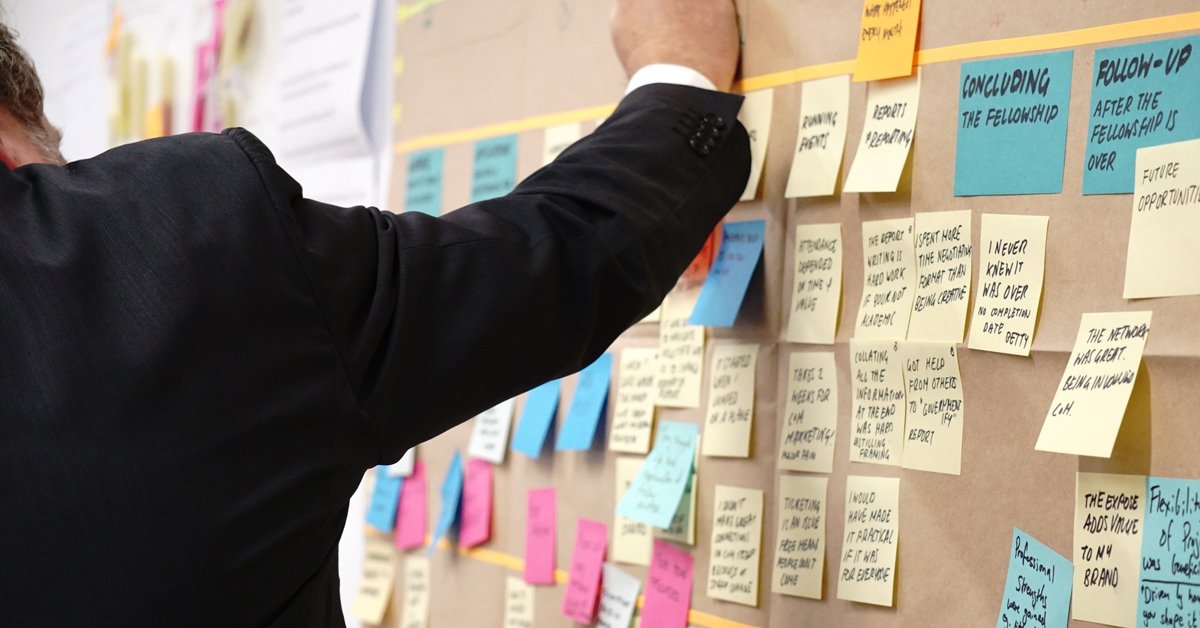
プロジェクトの作り方~その②~
こんばんは。
今回は、前回に引き続き、アメリカのチャータースクール「High Tech High」がまとめているのプロジェクトの作り方「Work that matters」を自分の学びの整理として、まとめていきます。今回は、section1「introduction」についてまとめていきます。
目次は再掲します。目次の順番は、まさにプロジェクトが作られていくステップをなぞるように構成されています。
Work that matters the teacher's guide to project-based learning
section 1: introduction
section 2: inspiration
section 3: foundations
section 4: execution
section 5: integration
section 6: Conclusion
Appendix 1: Learning more and meeting People
Appendix 2: Project Documents and Protocols
section1「introduction」(はじめに)
sction1はたった2ページです。内容は、Project Based Leraning(PBL)がなぜより活用されるようになってきたのか、ということについて書かれています。ここでは、タイトルにもある、「Work that matters」が何についていっているのかも触れています。
書き出しから、実際に行われたプロジェクトの内容についていくつか紹介しながら、プロジェクト学習の情景について書かれています。そのあとにこんな文章。
in preparation for today, students have been conducting research both online and throughout their town. they have produced draft after draft of their work, had it critiqued by their classmates, and refined it until it was ready for presentation. their work with local people and local businesses has broadened their horizons at the same time that it deepened their understanding of the place they come from.
(引用:「Work that matters」p.12
生徒たちは、自分たちでresearch(調査)し、
自分たちが作成したdraft(草案)をつくり、
クラスメイト同士でcritique(批評)し、
発表の日までにrefine(改善)していく。
そして、その取り組みを共有し、地域の人、企業人らと、一緒に学びを深めていく。
なんだか、とっても能動的で、子どもたちの輝くまなざし、「楽しそうな」状況が想像できます。と、同時に、苦悩したり、ぶつかったりする「苦しさ」もあるような気がしています。
teachers are no longer their students’ primary sources of information. instead, they are the designers of learning who created the conditions for the students to conduct their own enquiries, and advisers to whom learners can come as they create their product.
For both students and teachers, this is work that matters.
(引用:「Work that matters」p.12)
教師の仕事の仕方が変わっていることについて触れています。
つまり、PBLにおける「教師」は知識・技能を「教える・授ける」存在(=student's primary sources of information)ではない。
その代わりに、生徒自身は自分で問いをもち、自分で学習をデザインしてみ時から学んでいく。生徒自身が自分たちのプロジェクト学習のアドバイザーになっていく
それこそ、教師・生徒にとって、「Work that matters」(大切なのはそういうこと)なのである。
教師自身の仕事の役割は変化し、何かを教える「Teacher」から、共に学習をつくる「Generator」(共につくる人)に代わっていき、学びのプロセスすべてを生徒自身と作り、学んでいくことが重要であると言っていると思う。
What project-based learning is, and why more and more teachers are using it
(なぜ、プロジェクト学習は、教師たちにだんだん使われるようになったのか。)
そもそそ、プロジェクト学習は、最近になって出てきた教育手法ではなく、ジョン・デューイが体験学習の重要性を唱えた20世紀ごろ、また1970年代ごろに盛んに議論されていた手法です。
日本でも新自由主義教育の流れも実は戦前にあって、教科書ももっと日常生活や身近な自然を題材にした内容がより多く盛り込まれていた時期もありました。
僕の感覚では、こうした教育手法の「はやり」は、時代背景とも重なり、サイクルのように循環している印象があります。(このあたりはまた別の機会に書きたい。)
脱線しました。
ここでは、「プロジェクト学習」が最近使われるようになった理由が2つ挙げられています。
➀firstly, and most obviously, digital technology makes it easier than ever before for students to conduct serious research, produce high-quality work, keep a record of the entire process, and share their creations with the world.
新型コロナの影響でさらに加速しつつある「デジタルテクノロジー」の影響が大きいとのことです。
多くの有効なデータに触れることができたり、あらゆるツールを活用することで質の高いアウトプットをだせる、記録・作成したものをすぐに共有することができることなどは、プロジェクト学習の有効性を高めることにつながります。
②Secondly, we now know much more about how to do good, rigorous project based learning, and we can evaluate its effectiveness. this guide draws upon a substantial (and growing) body of knowledge, bringing together tried-and tested strategies and protocols that all teachers can use.
よりよくやっていくための方法を知ることができ(つまりこれまで研究がなかった?知られてこなかった?)、プロジェクト学習の効果性が評価されるようになったことが挙げられている。今回読んでいる冊子でもそういった実践知に触れることができ、それを教師たちは使うことができる環境にある、ということです。
最後にこのあたりもこの冊子のポイントと今後なりそう。
today, teachers around the world are designing projects for their students because they ignite a shared passion for learning in both students and staff; they foster a wide range of skills (such as time management, collaboration, and problem solving) that students will need at college, university, and in the workplace; and they can be tailored to suit students with a wide range of abilities and learning needs. in addition, teachers who are frustrated by narrow standardised tests are finding that students can acquire the curriculum content they need through projects, without letting the test dictate the curriculum.
これは、まさに、「学習観の転換が起きている」ことが書かれています。
カリキュラムにある知識をテストではかり、獲得させる学びではなく、一人一人にあった関心範囲の中において、生徒・教師が「情熱」をもって学びを進めることで、多くの様々なスキル(非認知的な能力)を養っていくことが大切である。
このあたりの、「学習観のパラダイムシフト」は今まさに過渡期であり、ここを乗り越えれるかで大きく今後の教育活動が変わる気がします。
この記事が気に入ったらサポートをしてみませんか?
